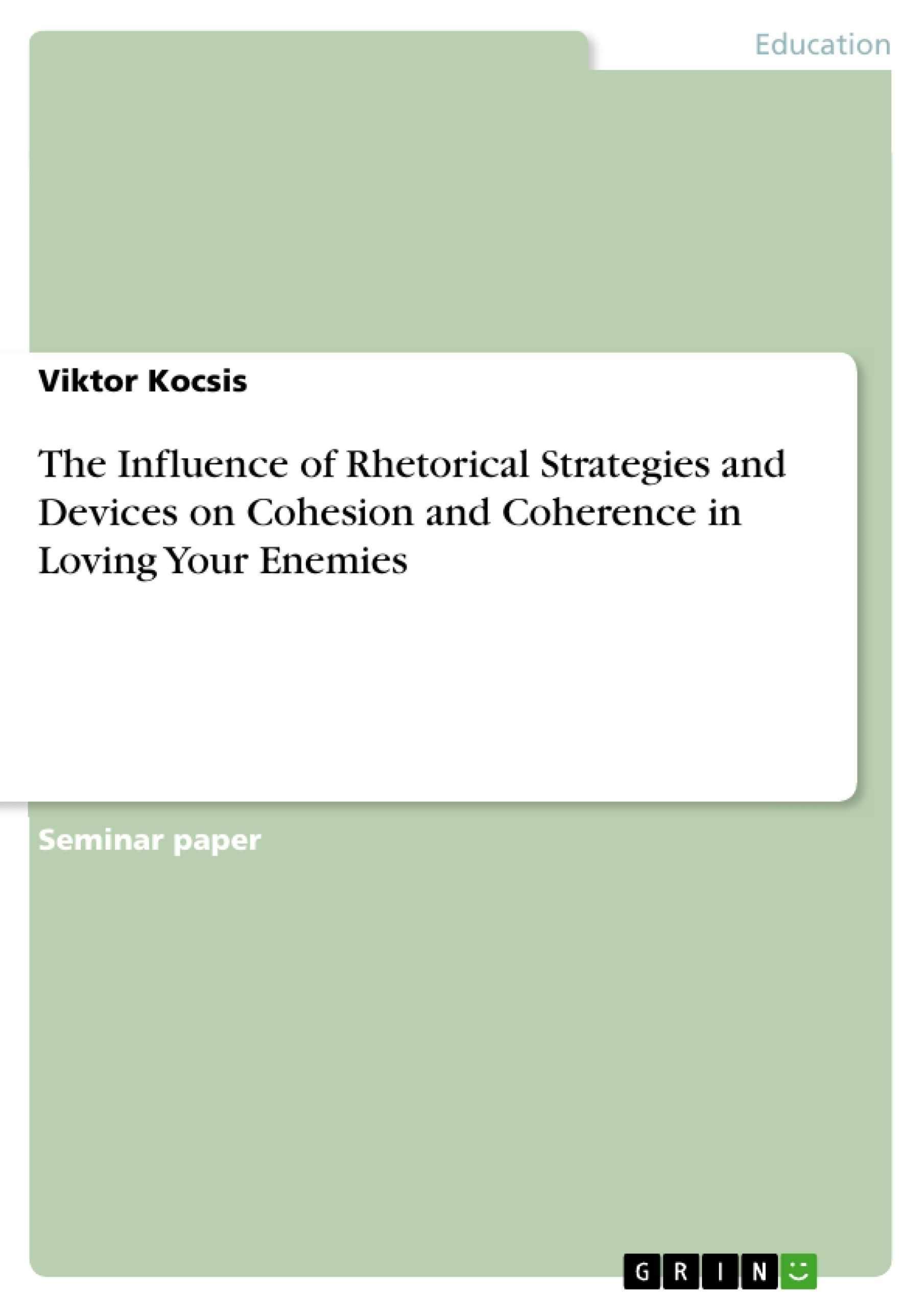The analysis focuses on the written script of Loving Your Enemies by Martin Luther King and examines the validity of the personal hypothesis that rhetorical devices have a significant influence on cohesion and coherence in King’s speech and that the latter textual notions, cohesion and coherence, can lead to an emotional and positive response by the audience. Due to the great length of Loving Your Enemies, the paper includes some charts to support a more compact and focused analysis.
Table of Contents
- Introduction
- Analysis
- Conclusion
- Bibliography
Objectives and Key Themes
This research paper examines the influence of rhetorical strategies and devices on cohesion and coherence in Martin Luther King's speech "Loving Your Enemies" (1957). The paper aims to analyze the relationship between rhetorical devices, cohesion, coherence, and emotionality in the speech.
- The role of rhetorical strategies and devices in creating cohesion and coherence in King's speech
- The relationship between cohesion and coherence and emotional response from the audience
- The importance of intentionality in successful political or activist speeches
- The analysis of King's speech through the lens of text linguistics
- The use of lexical repetition, hendiadyoin, and other rhetorical devices to enhance textual understanding and emotional engagement
Chapter Summaries
The Introduction provides context for the analysis by introducing the work of Atkinson and Lanham, who explore the role of rhetorical strategies in Martin Luther King's speeches. The introduction also outlines the core theoretical framework of the paper, focusing on the connection between rhetorical devices, cohesion, coherence, and emotionality. It emphasizes the significance of intentionality in achieving successful communication, particularly within the context of political or activist speeches.
The Analysis section delves into the specific textual features of "Loving Your Enemies" to demonstrate how rhetorical devices contribute to cohesion and coherence. The analysis utilizes the theoretical framework introduced in the Introduction, examining how lexical repetition, hendiadyoin, and other rhetorical strategies work together to create a meaningful and engaging text. The section highlights how King strategically employs these devices to establish connection with his audience and convey his message effectively.
Keywords
The primary focus of this research paper lies in exploring the relationship between rhetorical strategies, cohesion, coherence, and emotionality in Martin Luther King's "Loving Your Enemies." The keywords encapsulating these concepts are: rhetorical devices, cohesion, coherence, emotionality, text linguistics, intentionality, lexical repetition, hendiadyoin, and "Loving Your Enemies."
Frequently Asked Questions
What is the focus of the analysis of King's speech "Loving Your Enemies"?
The analysis examines how rhetorical strategies and devices influence the cohesion and coherence of the text and lead to an emotional response from the audience.
What is the difference between cohesion and coherence in text linguistics?
Cohesion refers to the grammatical and lexical linking within a text, while coherence refers to the logical and conceptual sense that makes a text meaningful to the reader.
How does Martin Luther King Jr. use lexical repetition?
King uses lexical repetition strategically to create emphasis, enhance textual understanding, and build emotional engagement with his message of love and non-violence.
What is a 'hendiadyoin' and why is it relevant here?
A hendiadyoin is a rhetorical device where two words are used to express a single complex idea. It is one of the strategies King uses to achieve textual cohesion.
Why is 'intentionality' important in political speeches?
Intentionality ensures that every rhetorical device is chosen purposefully to guide the audience toward a specific emotional and rational response.
- Quote paper
- Viktor Kocsis (Author), 2011, The Influence of Rhetorical Strategies and Devices on Cohesion and Coherence in Loving Your Enemies, Munich, GRIN Verlag, https://www.grin.com/document/230310



